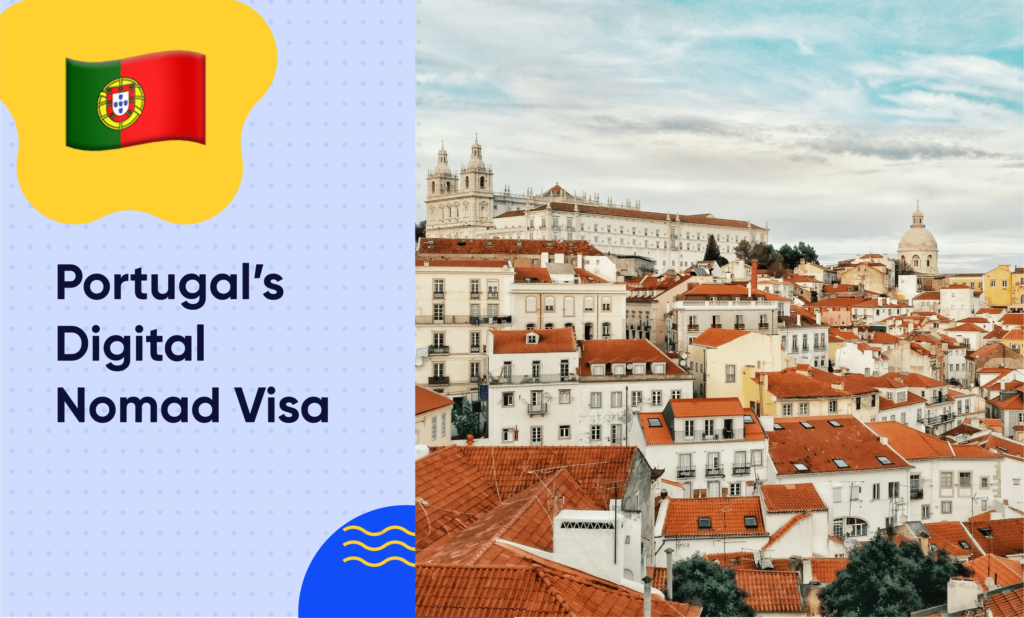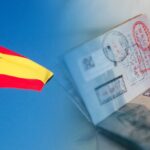The Portugal Digital Nomad Visa has become a popular choice for remote workers looking to combine work with the country’s stunning landscapes and vibrant culture.
As of 2024, the process remains straightforward but requires meeting specific requirements. This guide outlines the key steps to successfully apply for Portugal’s digital nomad visa and start your journey as a remote professional.
What is the Portugal Digital Nomad Visa?

The Portugal Digital Nomad Visa is a residency permit that allows remote workers and freelancers to live and work in Portugal while being employed or conducting business outside the country.
Introduced to attract skilled professionals, it offers a pathway for individuals to experience Portugal’s high quality of life while benefiting from its affordable living costs and warm climate.
Eligibility Requirements for Portugal Digital Nomad Visa
To apply for the Portugal digital nomad visa, you must meet specific eligibility criteria. Applicants must show proof of income of at least four times the Portuguese minimum wage, which is approximately €3,040 per month in 2024.
Additionally, you need to demonstrate that your income comes from sources outside Portugal, such as employment with a foreign company or freelance work for international clients.
You will also require a clean criminal record, valid health insurance, and a stable internet connection to maintain remote work.
Documents Needed for Portugal Digital Nomad Visa
When applying for the Portugal digital nomad visa, gathering the correct documents is essential.
The key documents include a valid passport, proof of remote income (such as bank statements or employment contracts), a criminal background check, health insurance coverage, and proof of accommodation in Portugal.
Additionally, applicants must submit a completed visa application form and pay the required processing fee. Ensure all documents are up to date and translated into Portuguese, if necessary.

Step-by-Step Process to Apply for the Portugal Digital Nomad Visa
1. Prepare Your Documents: Before starting the application process, collect all the required documents, including proof of income, accommodation details, and health insurance coverage.
2. Schedule an Appointment: Book an appointment at the nearest Portuguese consulate or embassy in your home country. Portugal requires visa applications to be submitted in person.
3. Submit Your Application: Attend your appointment and submit your completed application form along with all supporting documents. Make sure to pay the visa application fee.
4. Wait for Approval: After submitting your application, the processing time typically ranges from one to three months. You may be contacted for additional information or an interview during this period.
5. Travel to Portugal: Once your visa is approved, you will receive a temporary residency permit to enter Portugal. Upon arrival, you must schedule an appointment with SEF (Serviço de Estrangeiros e Fronteiras) to finalize your digital nomad visa and receive a residence card.
Why Choose Portugal for Remote Work?
Portugal offers numerous advantages for digital nomads. Its excellent infrastructure, affordable cost of living, and welcoming environment make it an ideal destination for remote workers.
Cities like Lisbon and Porto provide coworking spaces, vibrant communities, and access to high-speed internet. Additionally, Portugal’s mild climate, beautiful beaches, and rich cultural history attract professionals seeking a balanced lifestyle.
Cost of Living and Taxes for Digital Nomads in Portugal
While applying for the Portugal digital nomad visa, understanding the cost of living and tax implications is crucial.
Portugal offers an affordable lifestyle compared to other European countries, with monthly expenses for digital nomads ranging from €1,500 to €2,500, depending on location and personal preferences. Digital nomads must also consider their tax obligations under Portugal’s non-habitual resident (NHR) tax regime, which can provide significant tax benefits for remote workers.

Is a Bank Account Required for the Portugal Digital Nomad Visa?
To apply for Portugal’s digital nomad visa, it is not mandatory to open a Portuguese bank account during the initial application process.
The primary requirements focus on proving a stable income, meeting the minimum income threshold, and demonstrating sufficient financial means to support yourself during your stay. Typically, this can be done using bank statements from your home country or international banks.
However, having a Portuguese bank account can simplify certain aspects of living in Portugal, such as renting accommodation, paying local bills, or obtaining a NIF (Portuguese tax number), which is often required for long-term stays. Some authorities or landlords may also view a local bank account as proof of financial stability, making it beneficial but not obligatory.
Read more: Spain digital nomad visa guide 2024
Ultimately, while a Portuguese bank account may not be required to apply for the digital nomad visa, it can make the transition smoother if you plan to reside in the country for an extended period. Applicants should focus on fulfilling the primary financial criteria and legal requirements outlined by Portuguese immigration authorities.
Is Renting a Home Required for the Portugal Digital Nomad Visa in 2024?
To apply for Portugal’s Digital Nomad Visa in 2024, securing accommodation is a necessary requirement. Applicants must provide proof of housing, which can be achieved by renting or purchasing property in Portugal. Typically, a rental agreement for at least one year is required, ensuring applicants have stable housing during their stay.
This requirement underscores the importance of having a stable residence while living and working remotely in Portugal. Whether renting or buying, having a place to stay is vital for fulfilling the visa conditions, and it applies to both short-term and long-term stays.
In addition to accommodation, applicants must meet other criteria, such as demonstrating a minimum monthly income of €3,280 and providing evidence of remote work. Meeting these requirements ensures eligibility for the Digital Nomad Visa and increases the chances of a successful application.
Is there nationality restrictions in Portugal digital nomad visa?
As of 2024, there are no specific nationality restrictions for applying for the Portugal Digital Nomad Visa. The visa is designed for remote workers from around the world, regardless of their nationality.
However, applicants must meet certain financial and legal criteria, such as proving a stable income, demonstrating that their work can be performed remotely, and providing valid documentation for the application process.
Applicants from non-EU/EEA countries are typically the ones who benefit most from the Digital Nomad Visa, as it offers a streamlined option for remote workers who want to live in Portugal without needing a traditional work visa.
Citizens from EU/EEA countries do not need a visa to work remotely in Portugal, but they must still meet the residency and tax requirements set by the Portuguese government.
While there are no nationality restrictions, applicants should ensure they meet other eligibility criteria, such as the required minimum income (around €3,280 per month) and having a valid remote work contract.
It’s important to check for any changes to regulations that might apply based on the applicant’s nationality or individual circumstances.
Conclusion
The Portugal digital nomad visa in 2024 is an excellent opportunity for remote professionals looking to live and work in one of Europe’s most attractive destinations.
By meeting the income requirements, gathering the necessary documents, and following the application process carefully, you can enjoy Portugal’s unique blend of work-life balance. Start planning your move to Portugal today and experience all that this beautiful country has to offer.

